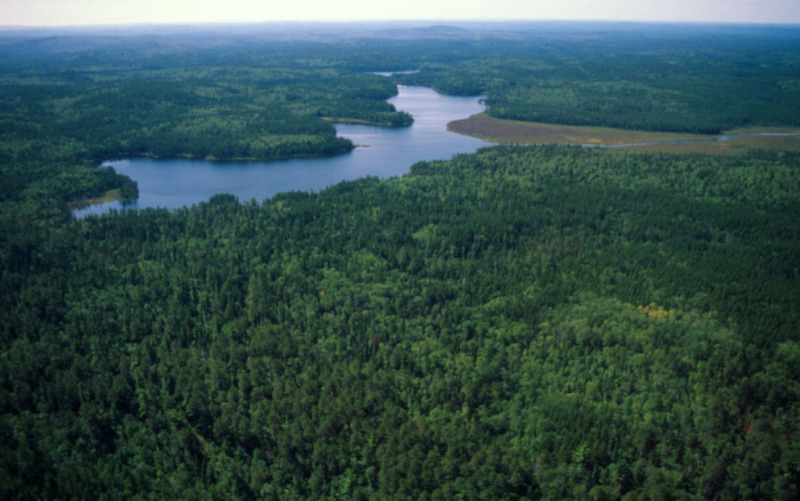From the air you breathe to your favourite book, forests are all around you. We’re working to protect them for people and nature.
Trees support the well-being of all kinds of animals, including people. Forests contain as much as 80% of the world’s terrestrial animal and plant life, and they give us medicine, food, paper and countless other products.
And it’s not just tropical rainforests like the Amazon that spill over with different species – forests in cooler climates also play an invaluable part in sustaining life on our planet.
What’s at stake?
The temperate forests of Russia, North America, Chile and Europe help absorb the gases that cause climate change, give us timber and paper products, and provide jobs for many people. They’re also a home for many species, from trees and flowers, to birds and butterflies, wolves and bears.
But huge areas of temperate forest have been destroyed. And poor management means that many forests no longer support the variety of life they used to.
The story so far
We’ve worked with governments, timber and paper companies, retailers and consumers to save these habitats from destruction by making sure they’re managed sustainably.
In 1991, we partnered with leading private sector companies to create the Global Forest & Trade Network.
Today, it’s a global partnership of some 275 retailers, producers, community groups and other organizations from across the forest industry supply chain. Members are committed to safeguarding the world’s forests and the communities, economies and ecosystems that depend on them.
We helped set up the Forest Stewardship Council (FSC) in 1993 to certify well-managed forests.
In Russia alone, we’ve helped the area of FSC-certified forest grow from 30,000 hectares in 2000, to 24 million hectares today. That means a quarter of Russia’s forest is now being managed to high environmental and social standards.
As well as promoting sustainable forests, we’ve helped protect unique forest areas from being developed at all.
Russia now has 68 official forest conservation areas covering more than 430,000 sq km – that’s an area larger than Germany.
In Canada we’ve won permanent protection for 1,000 parks, wilderness areas and nature reserves, doubling the country’s safeguarded spaces. We helped create more conservation sites in a decade than had been established in the previous century.
A WWF campaign in the 1990s encouraged Canadian state governments to add 39 million hectares of new protected area, vastly improving the representation of the country’s different ecosystems, habitats and species in the national protected area network.
And in forested landscapes between protected areas, Canada now has 40 million hectares certified by the FSC – more than any other country, and over a quarter of the world’s total.
Did you know?
The livelihoods of 1.6 billion people depend on forests. Millions of indigenous peoples are sustained daily by the water, plants and animals forests provide.
Facts and stats
- 80% – of plants and animals on land live in forests
- 40% – proportion of managed forest area certified by the FSC in Europe and in North America
- US$327 billion – value of the market for forest products
- 300 – indigenous First Nations communities who live in Canada’s boreal forest, the world’s largest intact forest expanse. Many have no road access.
What next?
Forests store huge amounts of carbon, so keeping them standing is essential to fighting climate change.
Our goal is for zero net deforestation by 2020. This doesn’t mean we stop using trees; it means we replant or restore forests at the same rate we harvest them.
What you can do
- Help us keep forests standing by buying wood and paper products with the FSC label.
- FSC is the only forestry certification scheme WWF supports – it’s the best guarantee that the products you’re buying come from well-managed forests.
- If your business buys wood or paper products, ask for FSC from your supplier.
- If you want to know more about becoming a responsible purchaser of wood or paper, check out the Global Forest & Trade Network website.
***************************************
Join the myWWF Action Center
Be part of a global community of activists ready to take simple online actions that can help save wildlife and people. Sign up today!
***************************************














